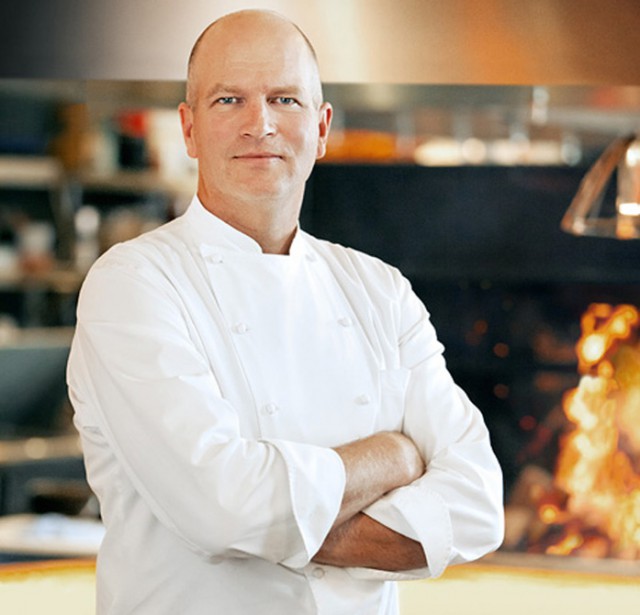
Bradford Heap has a passion for quality food, and he says he will do what it takes to get it to you.
Heap is owner of Pearl Street’s SALT bistro, Colterra Food & Wine in Niwot and his own catering company, Bradford Heap Catering. With each business, he says, he strives to incorporate the highest quality local and organic food he can find year round. As the winter freeze sets in and most restaurants finish the last of their local food supply, Heap continues to serve his customers fresh and local food. When the farms shut down for winter, products such as beets, carrots, winter squash, parsnips and apples are stored in large walk-in coolers, ready to be served to Heap’s customers until the next farming season. His intentions are to store as many products as possible, he says.
“It’s nice to have local organic produce. It really means a lot to me,” he says. “We have a chance to serve local product all year long.”
To Heap, buying locally is the most important aspect of his businesses. He writes his menus based on what products are available, and hopes to highlight specific items all year long. For instance, he has asked farmer Peter Volz of Boulder’s Oxford Gardens to grow two tons of carrots for him next season to use and store for next year’s dishes.
“I know I can really showcase [a product], and make it an important part of the dish,” Heap says.
Heap says his intention is to motivate others to follow his practices. He wants to encourage everyone to buy locally at the Farmers’ Market before winter, and store their products in their garages, root cellars or coolers like it was done many decades ago.
“That’s how the pioneers got through the winter,” he says. “I look back 80 years and try to run my kitchens like it was before factory farms. We’ve really tried hard to support the old-fashioned way of cooking.”
Heap is passionate about avoiding products that come from factory farms. Instead, he supports people who value food greatly, such as Boulder farmers. Dave Asbury, owner of Full Circle Certified Organic Farms, has known Heap for 18 years and says that he has always been really good about attending the Farmers’ Market and buying locally.
According to Heap, Asbury was one of the first farmers to store all of Heap’s apples and beets through the winter. However, because farmers need to take a break during the winter, Asbury explains that Heap is the only person he will store products for since he is such a great activist for supporting local farmers.
“[Heap] is definitely a staunch advocate for using as much as he can get his hands on,” Asbury says. “He wants to keep utilizing as much stuff as he can.”
In addition to storing ingredients in coolers during the winter, Heap is exploring other options for sustaining his products. SALT has begun pickling food this year, which he says has worked very well. He also eventually wants to learn how to can food for his restaurants. His wife serves as an example, as she canned 200 pounds of peaches this year, he says.
He also has made changes in his own dietary habits to further serve as a model for good, healthy eating. His restaurants will continue to be successful if he personally follows his own standards, he says. He also wants to be an influence for his family, which includes his 7-year-old twins.
“When I give them a plate of food, I want it to be good for them,” he says.
At home, Heap doesn’t throw food away. Instead he will feed scraps of food to his chickens. It’s a small example, he says, but he hopes to inspire others to rally together and embrace a healthy lifestyle.
“If we can inspire people just a little bit, there is a chance for a ripple effect,” he says.
Heap avoids a corporate business practice, opting instead to pay more money for organic, local food. He also is careful to embrace environmental sustainability, and all three of his businesses recycle or compost everything.
“You can do well in business, and do good for the environment,” he says.
Mostly, the passion for honest food and quality meals seems to be what drives Heap, and he hopes to spread his enthusiasm for wholesome food all year long.
“Our value system needs to shift,” he says. “We need to spend less time on our iPads, and more time canning and pickling and storing food.”
Respond: [email protected]














